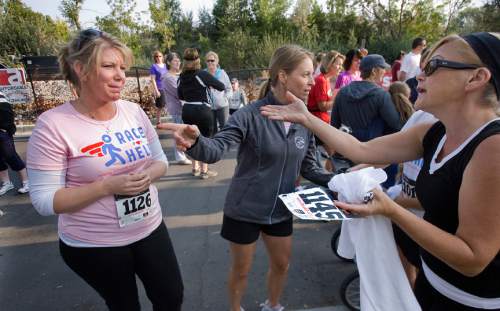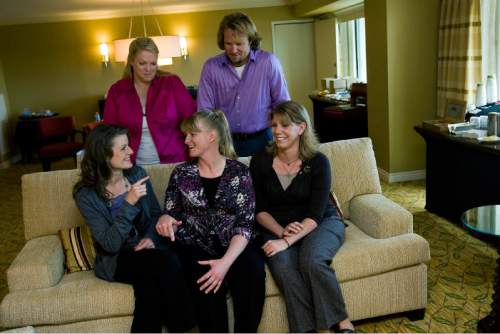This is an archived article that was published on sltrib.com in 2016, and information in the article may be outdated. It is provided only for personal research purposes and may not be reprinted.
Denver • Federal appeals judges pressed a lawyer for Utah on Thursday about whether the state needs a ban on polygamy if the law being challenged by the family from the TV show "Sister Wives" is used so rarely.
A three-judge panel of the 10th U.S. Circuit Court of Appeals in Denver asked some of the most pointed questions to Utah's lawyer, Parker Douglas, as it heard oral arguments on the state's appeal of a ruling decriminalizing polygamy.
Judge Nancy Moritz asked why charges were so rare if the state claims it needs the law to curb abuses associated with multiple marriages, such as underage weddings.
"Doesn't that sort of negate those state interests?" she said.
Prosecutors do not bring charges often, but when they do, the law helps in gathering evidence and strengthening cases against other abuses, Douglas said. Polygamy can be associated with crimes such as sexual assault, statutory rape and exploitation of government benefits, prosecutors have said.
Kody Brown and his four wives are urging the court to uphold a ruling that struck down key parts of the state law banning polygamy. The Brown family says its TLC reality show "Sister Wives" reveals that polygamous unions can be as healthy as monogamous ones and argues that making marriages like theirs a crime violates the right to privacy and freedom of religion.
The case concerns "important issues of personal and religious freedom that we are committed to defend," Jonathan Turley, a George Washington University law professor who is representing the family for free, said after the hearing.
The judges asked Turley what harm the law caused the Browns. Utah has a longstanding policy against prosecuting otherwise law-abiding adults in polygamous marriages and state attorneys have said they don't plan to charge the family if the law stands. But Turley said a chilling threat lingers and that the Browns have been publicly labeled felons by Utah officials.
"That's the type of harm that can be hard to imagine if it's never happened to you," Turley told the judges, who took the case under advisement.
The Browns won a legal victory in 2013, when U.S. District Judge Clark Waddoups found that a key part of Utah's bigamy law forbidding cohabitation violated the Browns' right to religious freedom and struck it down.
Bigamy, or holding multiple marriage licenses, is still illegal. Kody Brown has a license for only one of his marriages and says his other unions are spiritual.
The landmark decision removed the threat of arrest for plural families, but Utah said it could weaken its ability to go after polygamists such as imprisoned leader Warren Jeffs, who was convicted of assaulting underage girls he considered wives.
The Browns counter that other laws against those crimes are on the books and banning the practice can sow distrust of authority.
There are about 30,000 polygamists in Utah, according to court documents. They believe polygamy brings exaltation in heaven — a legacy of the early Mormon church. The mainstream Church of Jesus Christ of Latter-day Saints abandoned the practice in 1890 and strictly prohibits it today.
— Associated Press writer Lindsay Whitehurst in Salt Lake City contributed to this report.





